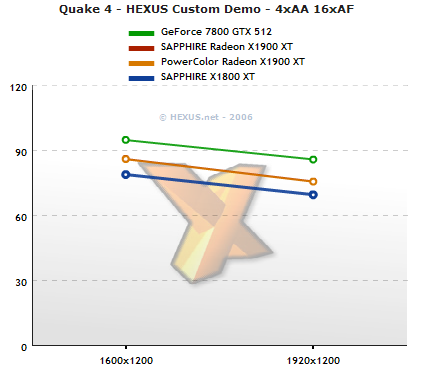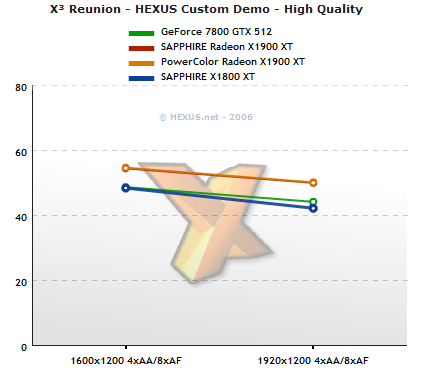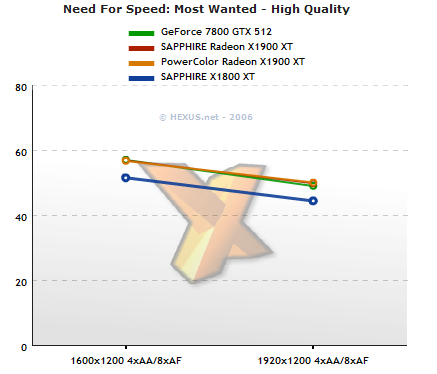Quake 4, X³. Reunion, Need For Speed: Most Wanted
Although we've pictured and undertaken testing of a number of Radeon X1900 series products, to date, all of these have identical BIOS revisions, core and memory frequencies, identical DRAM, and our enquiries indicate that the production of all the first batch of ATI R580 Master and Slave products were commissioned directly by ATI, and have been manufactured in the same factory.Our testing seemed to bear this out and shows that PowerColor and Sapphire Radeon X1900 XT benchmarked within a <1% deviation of each other.
Quake 4

OpenGL performance has always been NVIDIA's strongpoint. Before the introduction of the X1900 family, the GeForce 7800 GTX 512 was around 23% faster than a stock-clocked Radeon X1800 XT card if evaluated at 1920x1200. The Radeon's average framerate, though, was acceptable enough. The PowerColor/SAPPHIRE X1900 XTs manage to pull out a 10% lead over the X1800 XT, and that's with a memory bandwidth deficit.
X³. Reunion

X³. Reunion offers the X1900 cards a chance to flex their shading muscles. X1900 XT performance at 1920x1200 is up almost 20% from the outgoing model. That speed increase is enough to make both the R580-based cards faster than NVIDIA's souped-up G70.
Need For Speed: Most Wanted

Performance evaluation of Need For Speed: Most Wanted also puts the FPS crown back on X1900 XT shoulders. Having a speed increase when the previous flagship card averages, say, 125FPS is nice. Having one where the difference can actually be perceived and appreciated is that much better.









